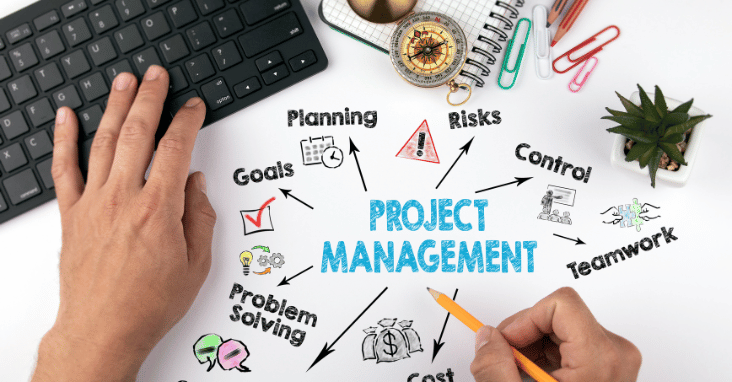Project management is an essential skill for any successful business. It involves setting objectives, creating a plan of action, monitoring progress, and making necessary adjustments to ensure the project is completed on time and under budget.
The 5 stages of project management are Initiation, Planning, Execution, Monitoring, Controlling, and Closure. These stages involve defining the project, creating a plan, carrying out the plan, tracking progress, making adjustments, and completing the project.
In this blog post, we will explore each of these stages in detail, discuss the benefits of project management, and provide practical tips on how to implement project management in your organization. By the end of this post, you will have a better understanding of how to use project management to ensure all projects are completed.
1. Initiating
When it comes to initiating a project, the first step is to define the scope, budget, and timeline of the project. This involves setting clear objectives and identifying the resources needed to complete the project. Additionally, it is important to assess the risks associated with the project in order to plan and develop an appropriate strategy.
The project manager should also determine the team members responsible for completing the project and assign tasks accordingly. It’s essential to set up a system of communication to ensure that all stakeholders are kept in the loop and that any changes or updates are communicated to the team.
By taking the time to initiate a project properly, you can ensure that it runs smoothly and that all objectives are met. Project initiation also sets the tone for the entire project and lays the foundation for a successful outcome. It is essential to ensure that the team is clear on the goals, timelines, and risks associated with the project so that everyone is on the same page from the start. This will help ensure the project is completed on time and within budget.
2. Planning
When it comes to planning a project, it is important to create a detailed plan outlining the tasks that need to be completed, the resources required, and the timeline for completion. This plan should include all the necessary steps and processes needed to complete the project. The project manager should also consult with the team to ensure that everyone is on the same page and that the plan is realistic and achievable.
Identify any risks associated with the project and develop strategies to mitigate them. It is also essential to set up a system of communication to ensure that all stakeholders are kept up to date with the progress of the project. This will help ensure the project is completed on time and within budget.
Remember to consider the impact of any changes that may need to be made throughout the project. The project manager should plan for contingencies and ensure the team is prepared to make any necessary adjustments as the project unfolds. This will help ensure the project is completed on time and within budget.
3. Executing
Once the project has been initiated and planned, the next step is to begin executing the project. During this stage, the team will begin working on the tasks outlined in the plan and make sure that all objectives are met. The project manager should also monitor the progress of the project and make sure that the team is on track.
Ensure you have a system of communication in place so that all stakeholders are kept up to date with the progress of the project. This will help ensure the project is completed on time and within budget.
Finally, it is vital to establish a culture of collaboration and open communication within the team. By encouraging team members to work together and share ideas, you can ensure the project is successful. This will help to ensure that all tasks are completed on time.
4. Monitoring
The next stage in the project management process is monitoring. This involves checking the progress of the project to ensure that it is on track and that any changes or updates are properly communicated and implemented. The project manager should also regularly consult with the team to make sure that all objectives are being met.
The project manager should also set up metrics for measuring progress and performance, as well as create a system for reporting any issues or changes. By regularly monitoring the progress of the project, the project manager can make sure that the project is on track and make necessary adjustments as needed.
5. Closing
The final stage of the project management process is closing. This involves ensuring that all objectives have been met and that the project has been completed on time and within budget. It is important to evaluate the success of the project, identify any areas of improvement, and document the lessons learned. The project manager should also consult with the team to make sure everyone is satisfied with the results of the project.
At this stage, it is also important to document the project and store all the relevant files and data. This will help to ensure that the project is appropriately documented and the information is easily accessible for future reference.
Finally, it is vital to recognize and celebrate the successes of the project. This will help to motivate the team and ensure that everyone is proud of the work that has been accomplished. By properly closing a project, you can ensure that all tasks are completed efficiently and that the project is completed on time and within budget.
Wrapping things up!
By understanding and utilizing the five stages of project management, businesses can ensure that all projects are executed efficiently and effectively. By initiating, planning, executing, monitoring, and closing projects, businesses can ensure that all objectives are met and that the project is completed on time and under budget. Project management is an essential skill for any successful business, and by utilizing the five stages outlined in this blog post, businesses can ensure that all projects are completed successfully.
Find the Best Project Management Tools on the Serchen Marketplace















